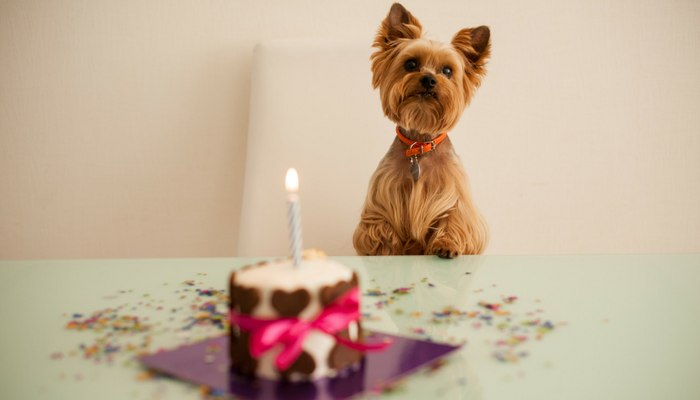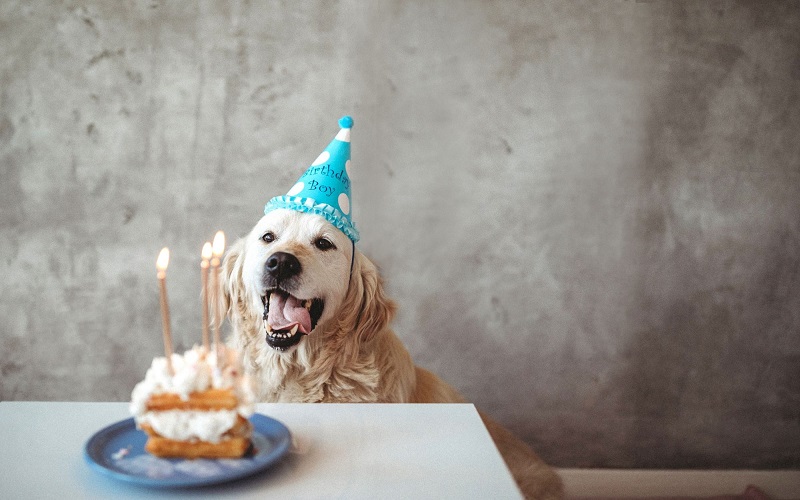Puppies undergo significant changes as they transition from their first year to adulthood. By the time they reach one year of age, most puppies have already reached their full size and weight, and their growth rate slows down considerably. Their activity levels may also decrease, and they may become less hyperactive and more settled in their behavior.

The changes in puppies after one year of age reflect their maturation and growth into adult dogs. At this age, puppies have typically developed a better understanding of their surroundings and can communicate their needs and wants more effectively. They may also become more independent and less reliant on their owners for guidance and supervision.
Unique challenges to expect after your puppy turn one
Once a puppy turns one year old, they have usually passed through its puppy phase and become a young adult dog. This stage of development can present some unique challenges for dog owners, including:
- Adolescence: Like human teenagers, young adult dogs can experience a rebellious phase. They may test boundaries, become more independent, and engage in frustrating behaviors for their owners.
- Increased energy: Young adult dogs have more power than puppies, requiring more exercise and stimulation to prevent destructive behavior.
- Health concerns: As dogs age, they become more susceptible to specific health issues, such as joint problems, dental issues, and weight gain. Owners must maintain their dog’s health and seek veterinary care.
- Behavioral issues: Some dogs may develop behavioral problems as they mature, such as aggression, separation anxiety, or fearfulness. These issues may require professional training or behavior modification to resolve.
- Socialization: Puppies go through a critical socialization period in their first few months, but socialization should continue throughout a dog’s life. Young adult dogs may benefit from continued exposure to new people, animals, and environments to prevent fear and aggression.
Owning a young adult dog requires ongoing attention, training, and care to ensure they grow into well behaved, healthy, and happy dogs.
Tackling these challenges
You should know what to do when puppy turns 1. Here are some simple parenting tips for puppies that have become one:
- Maintain a consistent routine: Even though your puppy is no longer a baby, they thrive on structure and performance. Stick to a constant feeding, exercise, and training schedule to keep your puppy happy and well behaved.
- Continue socialization: Just because your puppy has turned doesn’t mean they no longer need socialization. Keep exposing your puppy to new people, dogs, and environments to help them continue to develop their social skills.
- Provide plenty of exercises: Puppies who have turned one still have plenty of energy and need regular exercise to stay healthy and happy. Ensure your puppy has plenty of opportunities to run, play, and explore.
- Keep training: Your puppy may have learned basic obedience commands as a younger pup, but exercise should be ongoing. Keep teaching your puppy new skills and reinforcing good behavior to help them continue to develop into well-behaved adult dogs.
- Be mindful of dietary needs: As your puppy grows into an adult dog, their needs may change. Please consult your veterinarian to ensure your dog gets the right balance of nutrients and adjust their diet as needed.
- Keep up with regular vet checkups: Regular veterinary checkups are essential for dogs of all ages, especially as they age. Ensure your puppy is up-to-date on vaccinations and receives regular wellness exams to catch any potential health issues early.
- Give plenty of love and attention: Your puppy may no longer be a baby, but they still need plenty of love and attention from you. Spend quality time with your dog, give them plenty of affection, and make sure they know how much you care.

Avoid parenting mistakes with your puppy who has just turned one
As mentioned above, you must be mindful of your puppy’s diet. However, do not make the following seven mistakes-
- Feeding inappropriate foods: Puppies have different nutritional requirements than adult dogs and require a diet higher in protein, fat, and calories. Providing them with the wrong foods, like table scraps, chocolate, onions, garlic, and grapes, can harm their health.
- Overfeeding: Puppies increase and require a lot of energy, but overfeeding can lead to obesity, which can cause various health problems, including joint problems and heart disease.
- Feeding a low-quality diet: Low-quality diets lack the necessary nutrients and can cause health problems in puppies, such as poor growth, weakened immune systems, and digestive issues.
- Inadequate hydration: Puppies must drink enough water to stay hydrated and maintain healthy digestion. Always provide fresh, clean water to your puppy, and make sure they consume enough throughout the day.
- Inconsistent feeding schedule: Puppies thrive on routine, and feeding them inconsistently can cause digestive upset and behavior problems. Develop a feeding schedule and stick to it.
- Ignoring signs of food intolerance or allergies: Puppies can develop allergies or intolerances to certain ingredients, such as grains or chicken. Watch for symptoms of allergies, such as itching, gastrointestinal upset, and ear infections, and make dietary changes as needed.
- Not consulting a veterinarian: Always consult a veterinarian before making any significant variations to your puppy’s food habits. They can advise you on the best food and feeding schedule for your puppy’s needs.
Having a happy and healthy puppy is one of life’s greatest joys. The boundless energy and enthusiasm a puppy brings to your life are contagious and can brighten even the darkest days. Watching them play and explore their surroundings with unbridled curiosity reminds them to enjoy life’s simple pleasures.
A puppy’s unconditional love and companionship can also be incredibly therapeutic and comforting, helping reduce stress and anxiety. Providing your puppy with the right ambiance and care will grow into a healthy dog. As a pet owner, your responsibility is enormous. You should adopt a pet only when you are sure that you will be able to provide them with the required love and attention. Your dog is your companion and not a toy. Make sure to distinguish between the two.
